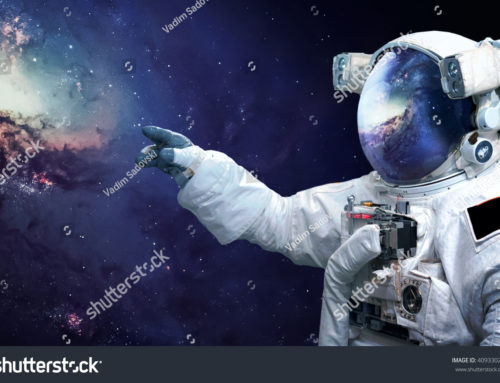The world in which we live wouldn’t be possible without science. Imagine if no one had ever discovered electricity, or the wheel. Or fire. The discoveries of science through the centuries have led to new technologies that have opened the door to new discoveries and even newer technologies. Today, the world has been “hominized” — to borrow a phrase from Teilhard de Chardin — and is in the midst of an evolutionary jump made possible by science. So why has science been receiving so much bad press? There is a reason, but to appreciate it, it helps to understand, at a deep level, what science is supposed to be and what it has become.
Science looks at the small picture…
The word “science” comes from the Latin word for knowledge, which in turn comes from a Greek word that means to split, rend or cleave. The etymology highlights the fact that the pursuit of knowledge throughout the ages, at least in the Western world, has been based on reductionism — a technique that reduces complexities to their simplest terms in an effort to understand them.

Photo by Hal Gatewood on Unsplash
A visionary few that opposed this trend and been responsible for major breakthroughs. The historical space between such visionaries is filled with the work of “bean counters” who spend their time collecting data, analyzing results and probing ever deeper for fundamentals. Boring work….but necessary. In fact, visionary advances wouldn’t be possible without the bootstrap work of experimenters and theoreticians who who dissect and analyze in the search for fundamentals.
…and the big one.

Photo by Greg Rakozy on Unsplash
By itself, reductionism is a flawed technique, because, as it turns out, there’s a limit to how closely you can examine nature through a microscope. At the quantum level, things are so frustratingly blurry that you can’t determine whether you’re dealing with matter or light.That’s the reality that dawned at the beginning of the 20th century as quantum scientists turned an increasingly sharper focus on the fundamental particles that form the material world.
Faced with the limitation of quantum uncertainty, it makes sense to turn to holistic approaches that study macroscopic and systems behaviors. This approach is based on the perception that understanding the individual necessarily involves a study of the individual’s interactions with its “community,” whether that’s a collection of quarks, rain clouds or fellow members of the Lion’s Club.
My brain! It’s…sciencing!
Scientific knowledge becomes part of the collective worldview.
At both the macroscopic and microscopic levels, science is all about breaking new ground, so scientists are bound to make mistakes. Mistakes help distinguish truth from supposition, myth and falsehood, and they are a centuries’-old tradition. Think of each mistake as but a bumper in the journey of a pool ball to the corner pocket.
When scientists agree on something, it’s only after a series of mistakes have forced them to come to the same conclusion. They may make the same mistakes, or they may make different ones, and when the mistakes are different, the conclusions are even stronger. Scientific knowledge eventually finds its way into search engine results and ultimately into the human nervous system where it conditions attitudes and actions.
Science is a collective agreement about the nature of reality, even though reality remains essentially a mystery. An infant learns to walk by making mistakes. That’s also how humans have learned to fly, created a planet-wide neural network and started to explore the galaxy. Many experiments fail, but each one, whether it succeeds or fails, sends a complexifying, telepathic signal into the nervous system of every human being that subconsciously signals the adoption of a revised collective reality.
Through the centuries, scientists have uncovered some surprising truths that may seem commonplace now but which revolutionized human thought when they were first realized. Through careful observation and application of mathematical principles, such awesome realities as the electromagnetism, the expanding universe and the world of cells and microorganisms are today the heritage of every human being. Some conclusions may be hard to accept, such as the effects of human activity on climate change, but a bet against scientific consensus is a foolhardy one.


